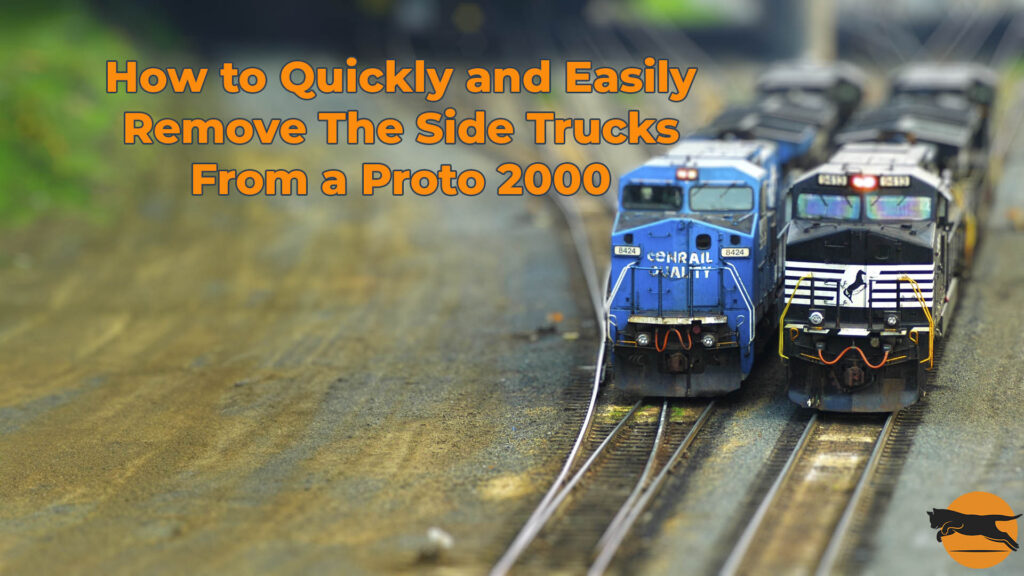Inspiration and Prototype Research
Side Truck Removal Made Easy on a Proto 2000
Table of Contents
Watch Along: Removing Side Trucks Step by Step
Side Truck Removal Made Easy on a Proto 2000
Stepping into your first locomotive teardown can feel daunting, but with the right approach even a complete beginner can breeze through it. In this post, I’ll walk you through removing the side trucks on a Proto 2000 FEC SW1200, sharing the simple tools and tricks that make it stress-free—and set you up for the next maintenance steps.
When I first tackled the side trucks on my Proto 2000 FEC SW1200, I was surprised by how straightforward it really is. Instead of wrestling with all four trucks at once and risking misaligned wheels, I discovered a one-at-a-time approach that keeps everything snug and orderly.
What You’ll Need
- A pair of solid tweezers (nothing fancy—just sturdy)
- A well-lit workspace
- A clean, soft cloth to set parts on
Why One Truck at a Time?
If you remove all the trucks together, you’ll find the wheels can shift or loosen in their bearings. By focusing on one truck at a time, you maintain the correct wheel spacing and keep everything ready for reinstallation.
The Simple Release Mechanism
If you flip your loco upside down, you’ll notice each truck simply clips onto a small tab on the side frame. Slide your tweezers under the tab, lift gently, then repeat at the back until it pops free—no force required.
Once it snaps out, wiggle it back and forth to ease it completely free. Lay it on your cloth and move to the next truck.
Protect the Pickup Plate
Inside each truck assembly lives a thin metal (in this case, copper) plate that carries current from the rails to your motor. When you pry off the truck, be mindful not to bend or scratch that plate. A gentle lift is all it takes to preserve that vital electrical contact.
What’s Next?
With your side trucks off, you’ve unlocked the door to real maintenance. In the next video, I’ll dive in to clean those wheels, apply contact cleaner, and swap in fresh roller bearings for smoother running. But for now, congratulate yourself on mastering the first—and easiest—step.
If you found this guide helpful, subscribe to the channel and stay tuned for more hands-on locomotive rebuild tips. Happy modeling!
Real Words, Just Polished with a Little Help
Note: I used AI to help turn the transcript of my latest video into this blog post. The words and ideas are mine—I just got a little help organizing them and cutting out the fluff for those of you that are in a rush and to help search engines find me.

